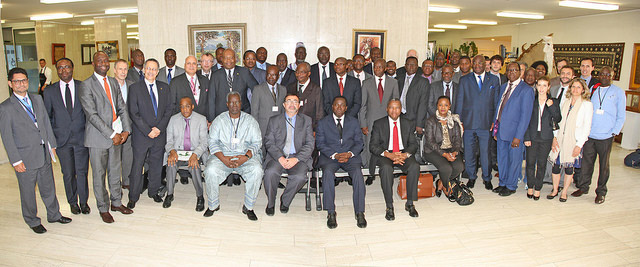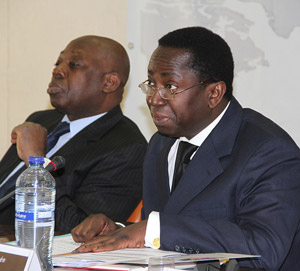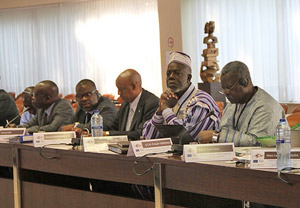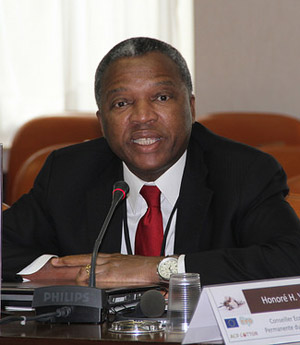ACP celebrates ten years of COS-Cotton

Brussels 15 July 2014/ ACP: The European Union and its member states have provided an estimated €400 million to develop the African cotton sector from 2004 to 2014, equivalent to almost 70% of total assistance from major donors towards the sector.
Development gains made under the EU-Africa Partnership on Cotton were marked at the 19th meeting of the COS-cotton (Comité d'Orientation et de Suivi sur le coton – Steering and Follow up Committee on Cotton) at ACP House, 2 July 2014. The Partnership was originally set up to improve the competitiveness, added value and sustainability of the cotton sectors in Africa, in order to boost producers' incomes.

“The European Union believes this programme is especially important. It is the fruit of close consultations between ACP secretariat and DEVCO,” said DEVCO Head of Unit Mr. Denis Salord.
However, challenges still remain for ACP cotton producers in terms of a solution under WTO rules that puts the development dimension of the cotton trade first. Twenty-eight cotton producing ACP countries are affected, including the “C4” – a West African coalition of Benin, Mali, Burkina Faso and Chad – seeking cuts in cotton subsidies and tariffs at WTO negotiations.
“While I am satisfied that some of the C4’s concerns were included in the Bali package, the efforts deployed to find a solution to the cotton problem, at the trade negotiations level of the Doha Round, have not yet met our expectations,” said the ACP Secretary General H.E Muhammad Mumuni. “The issue of agricultural grants, notably on cotton, are therefore a major challenge to all the members of the multilateral trade system.”

He noted that the grants in favour of the cotton industry continue to have an impact on the trade in fibres. According to recent statistics from the International Cotton Advisory Committee (ICAC), in 2013/2014, cotton industry grants are estimated at US$6.5 million.
The meeting, chaired by the Ambassador of Benin in Brussels H.E Mr. Charles Todjinou, discussed cotton and trade negotiations after the most recent WTO ministerial conference in Bali, with representatives of the C4 countries citing an inventory of post-Bali trade negotiations. In addition, participants heard progress reports from experts heading the support programme for the EU-Africa Partnership on Cotton, including the status of calls for proposals for grant contracts and short-term expertise. Regional focal points presented the status of the implementation of their respective regional cotton strategies, and cotton trade organizations around the continent their main activities during the last semester.

Delegates included the Agriculture Commissioner for ECOWAS, representatives of cotton producing countries and professional organisations on the ground such as AProCA, ACA, ACTIF, and MoZaSima, international organisations including UNCTAD, FAO and ITC, and other officials.
The event was a prelude to the actual celebration of the 10th anniversary of the EU-Africa Partnership on cotton to be held at the 20th meeting of the COS-cotton at the end of 2014. COS-cotton members expressed a strong desire for the meeting to be held in Africa.
Full statement by the Secretary General
– ACP SEDT/ ACP Press
(Photos from top: Meeting participants; ACP Secretary General Alhaji Mumuni (left) and Benin Ambassador Charles Todjinou; Cotton sector representatives; ECOWAS Commissioner for Agriculture Marc Atounga)
